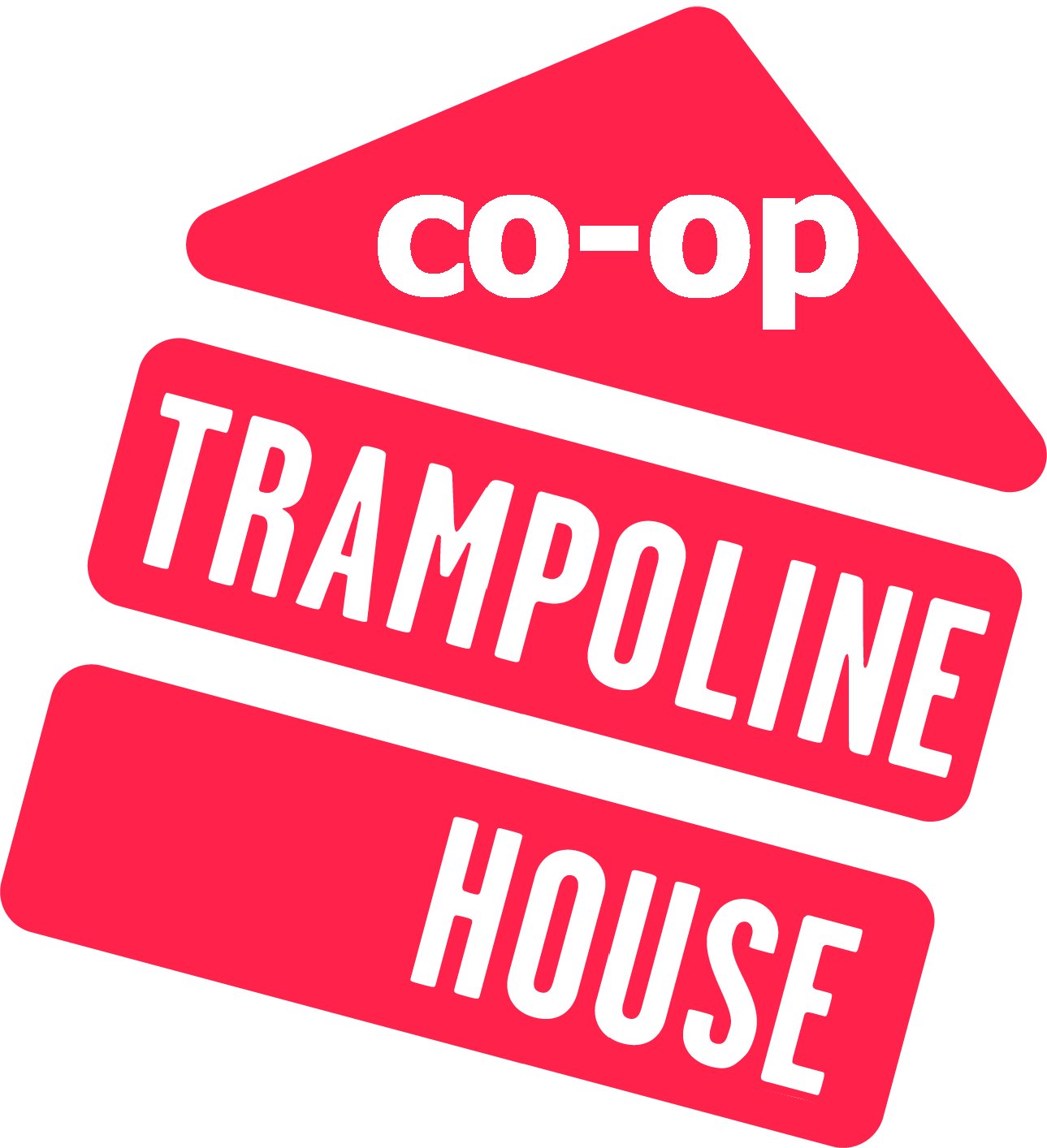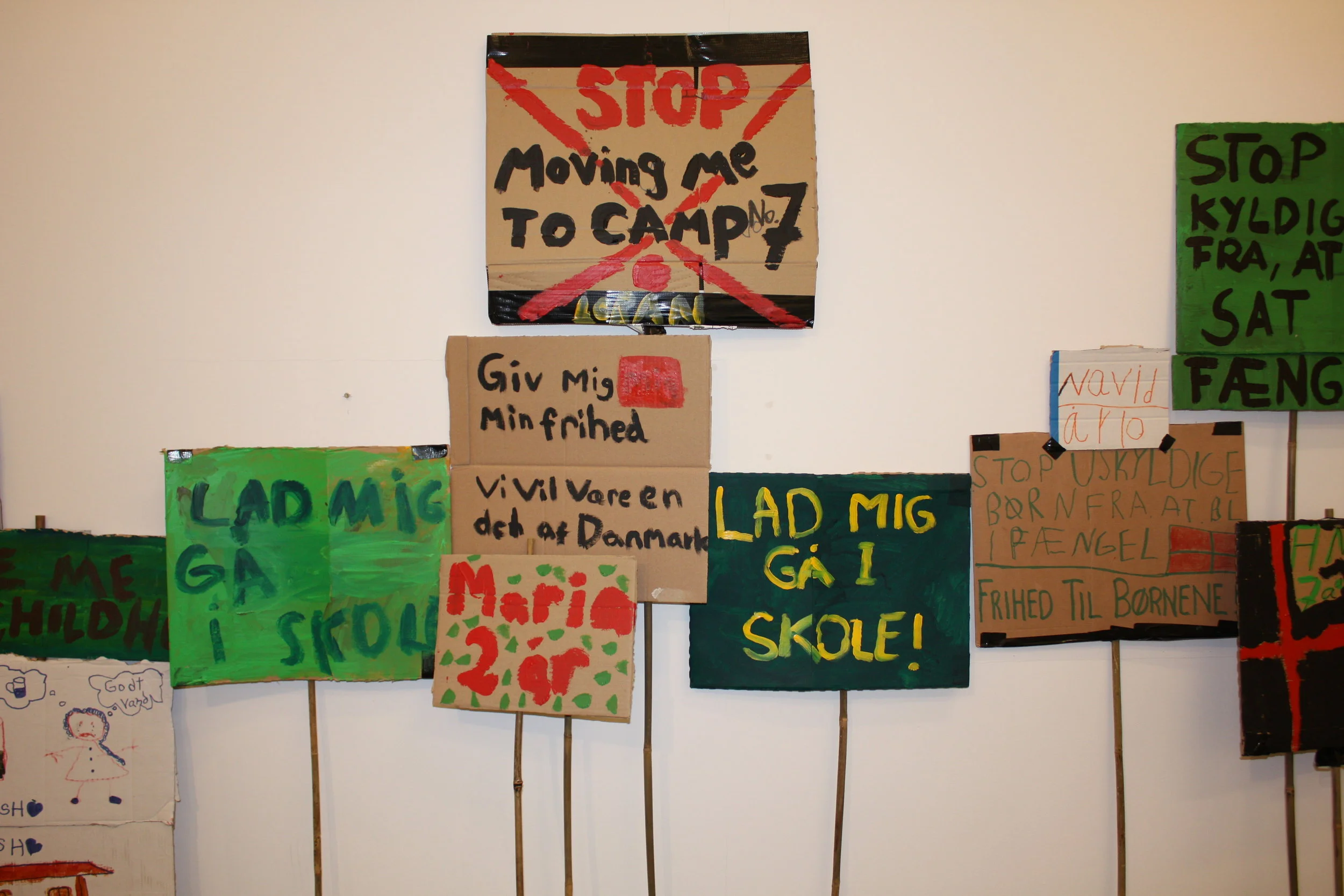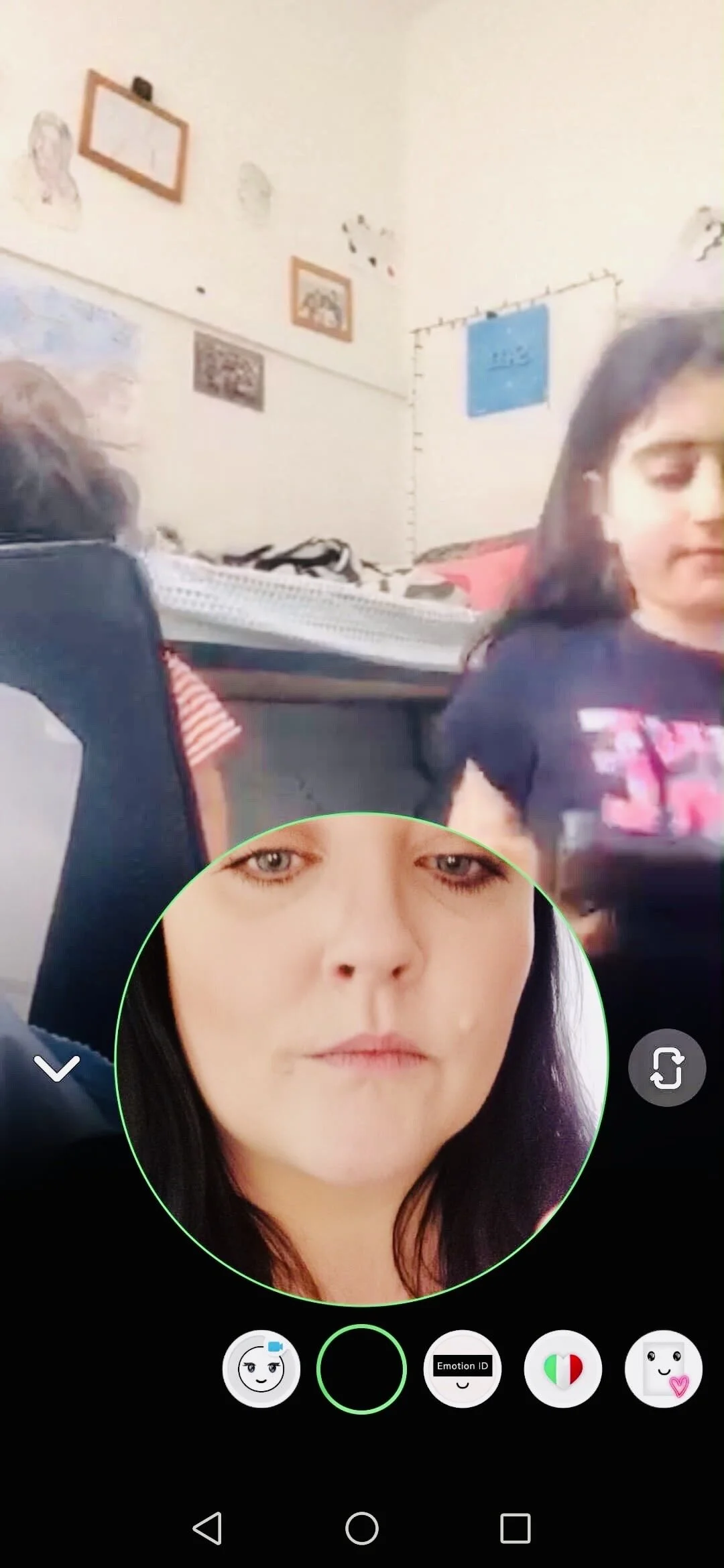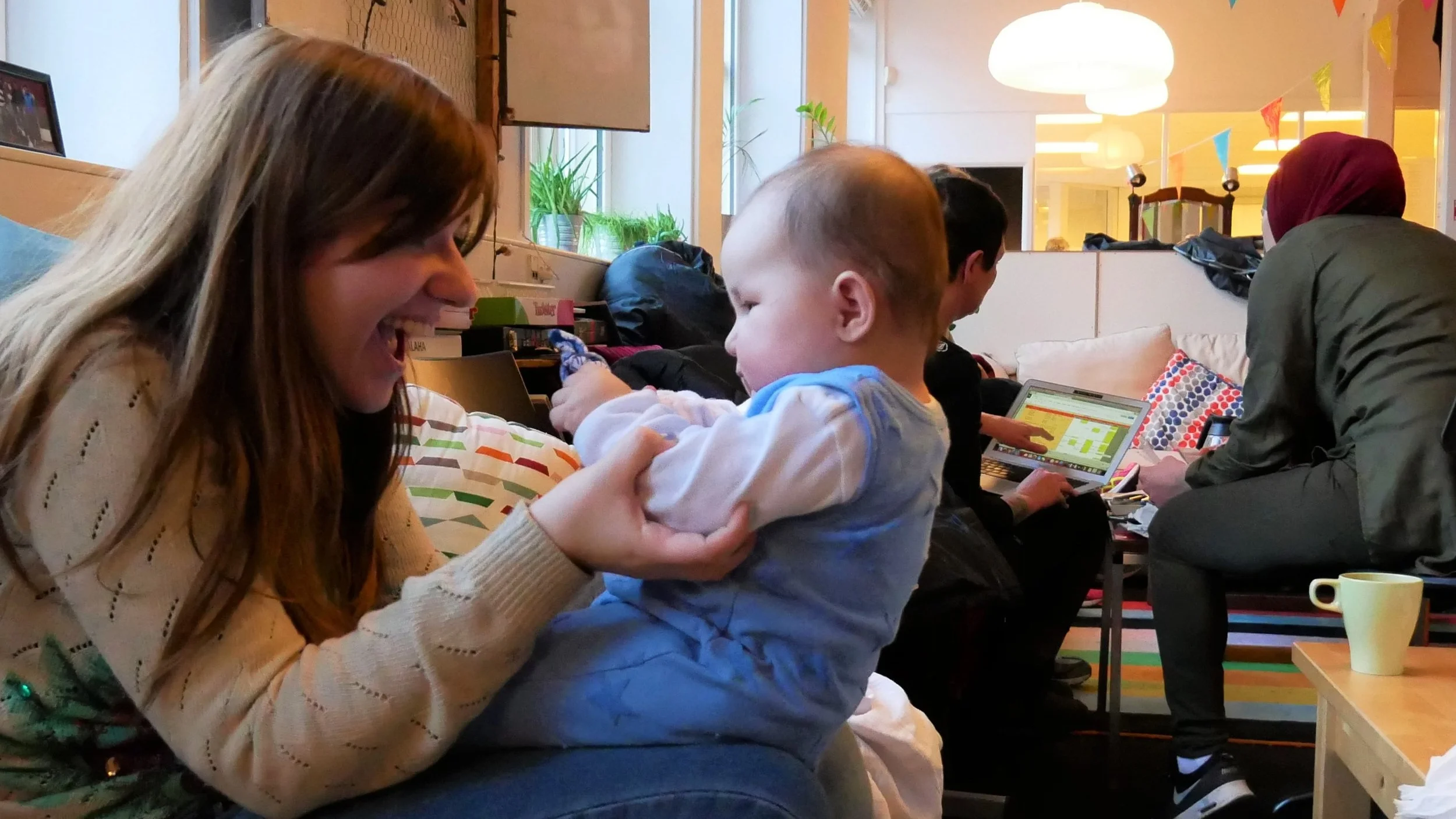Asylum-seeking children: We demand the right to a safe childhood
Klik her for dansk
Asylum-seeking children and their parents from the citizen house Trampoline House invite all Danish-based organizations working for children's rights to join forces and create a popular movement focusing on the right to a safe childhood for children in the Danish asylum system.
There are currently around 2,900 children and teenagers living in Denmark's asylum centers. Some live with their family in one of the so-called accommodation centers while they wait for a decision on their asylum application. Others have arrived in Denmark alone and are accommodated in specialized children's centers while they go through the asylum application process. Others still have been transferred to the new deportation center Sjælsmark with their family, where they are waiting to be forcibly deported. Common to them all is that they wait months and years feeling insecure and unsafe. A total of 128 children have lived between 4 and 12 years in the Danish asylum system - some of them their entire lives.
We want to give them a better childhood.
About the Movement
The movement will be a mouthpiece for the children's own voices, perspectives, and wishes. It is launched with a series of testimonies on social media, where the children themselves show and explain about growing up in the Danish asylum system. These testimonies are intended to partly inform about the campaign topic and to partly mobilize the public to join a torch light procession lead by the children. We follow up with a public hearing at the Danish parliament Christiansborg, where ways to secure the children a safe childhood are presented.
Background
Life in an asylum center is characterized by uncertainty and worries, which is incompatible with the framework needed for ensure children a safe and dignified childhood. Scientific research indicate that children as well as adults become anxious, stressed, and depressed from the waiting time and the uncertainty, and that long-term stays in the centers without a resolution leads to various permanent disorders. (See Katrine Vitus og Signe Smith Nielsen, Asylbørn i Danmark – en barndom i undtagelsestilstand, Hans Reitzels Forlag: 2011).
In short, the asylum system needs to improve parents' possibilities to maintain a healthy and normal role as a caring and guiding parent - and their children must be allowed to be children with a childhood that's as normal as possible.
There are especially six areas where we can significantly improve the lives of children in the asylum system in Denmark:
1. ”We want to stay in the same place”
Families are often being moved from asylum center to asylum center. On average, an asylum seeker in Denmark lives in 6 different centers during the asylum process. The result is an isolated and unsafe existence, where it becomes difficult for children to trust and attach themselves to others.
Asylum seeking children should, of course, have access to basic safety. Therefore, we suggest that all asylum seeking families regain the right to private housing and access to public kindergartens and schools - and, until then, that an upper limit is decided regarding how many times a child may be moved from center to center.
2. ”I want a free childhood
More and more families are being moved to the deportation camp Sjælsmark if the family’s asylum application has been rejected. Here, they face prison-like conditions: the family doesn't receive any allowance, the children have poor possibilities for participating in leisure activities, and the family is not allowed to cook or prepare snacks, but have to live from cafeteria food at three fixed times every day. All family members live in constant fear of being forcibly deported, and many children are afraid of the uniformed police officers working in the center. These conditions only worsen the children’s well-being even more.
We can and must do better. Therefore, we suggest that all asylum seeking families regain the right to private housing and access to public kindergartens and schools - and, until then, that no more families are to be moved to a deportation camp.
3. ”I want to live with my family”
The Danish government has made it easier to forcibly remove asylum-seeking children from their parents, but forced removals are not a sustainable solution. Paradoxically, it is the asylum system itself that makes it difficult to be a good parent - and that may result in a forcible removal.
Therefore, we suggest that all asylum seeking families regain the right to private housing - and, until then, that the parents are guaranteed a separate bedroom, and that more caregivers are employed in the centers, who can relieve the parents and help with child care, leisure activities and care.
4. "I miss having a family"
Unaccompanied minors often risk waiting several years before the Danish Immigration Service considers them mature enough to go through the asylum application process. Up until 2010, minors were granted temporary residence permit with a foster family while they waited, but now all unaccompanied minors have to live in a children center while they wait. There is no age limit set for when a minor is considered mature enough to undergo the asylum process to have their claim assessed - Immigration Service calls minors for an interview once a year to assess their maturity. If their asylum claim is not assessed when they turn 17, they are transferred to an accommodation center for adults where little attention is paid to the needs of this vulnerable group.
Therefore, we suggest that unaccompanied minors regain the right to temporary stay with a foster family until their case has been assessed, and that the yearly maturity examination, which creates extra stress and insecurity, is replaced by a fixed and predictable age limit for the asylum interview.
5. “I want dad and mum here”
Even children who have residency in Denmark through one parent are negatively affected if the other parent can’t get asylum or family reunification.
Therefore, we suggest that children are guaranteed the right to live with both of their parents, and that this right should carry considerable weight in all asylum or family reunification applications.
6. "I don't want to live in an asylum center my entire life"
128 children and youths have spent between 4 and 12 years in the asylum system - some of them even their entire lives. That is a childhood that no child should experience.
Therefore, we suggest that the case processing time for children and their parents is shortened, that the wellbeing of the child is considered in all asylum assessments, and that children are granted the possibility to apply for asylum themselves even if their parents' cases have been rejected.
Do you want to join the Movement for Asylum Seeking Children's Future?
As a private person, you can stay updated on how you can contribute by following Folkebevægelsen for asylbørns fremtid on facebook
As an organization, you can become a co-organizer of the Movements' different elements. Learn more by joining our brainstorm meeting in Trampoline House on Monday, November 20, at 11 am-3 pm, where we'll also serve lunch. In order to sign up for the meeting or for more information, please contact:
Tone Olaf Nielsen, Children's and Women’s Program Coordinator in Trampoline House: toneolafnielsen@trampolinehouse.dk / 20 93 50 86
Kajsa Böttcher Messell, Communications Coordinator in Trampoline House: kajsa@trampolinehouse.dk / 50 17 46 64
Everybody is invited to participate, regardless of political viewpoints. Right now it’s not about asylum politics as we know it, but exclusively about children’s right to a safe childhood.
They are also part of the Movement:
Amnesti Nu
Bedsteforældre for Asyl
Michala Clante Bendixen, forkvinde Refugees Welcome
Niels Nymann Eriksen, præst i Apostelkirken
Kvindefredsligaen
AnneLise Marstrand-Jørgensen, Venligboerne
Mads Nygaard, Venligboerne
Vores Asylbørn
Re-Mind, the social communications bureau
Read more:
Når børn søger om beskyttelse, compendium published by UNHCR, UNICEF, and Danish Refugee Council in 2016, including a chapter on the child's welfare in the Danish asylum procedure.
"Børns Vilkår: Forholdene på Sjælsmark er kummerlige", article by lawyer and journalist Olav Hergel in Politiken, October 29, 2017.
"Når asylcentre bliver barndomshjem", article in Kristeligt Dagblad by pastor Niels Nymann Eriksen, September 26, 2017.
"Mindst 120 børn har levet mellem 4 og 12 år det danske asylsystem", article by lawyer and journalist Olav Hergel in Politiken, July 9, 2017.
"Afviste asylbørn er dansk politiks kastebolde", article by lawyer and journalist Olav Hergel in Politiken, July 15, 2017.
Read more
Support Trampoline House
Every contribution matters. You can help ensuring that asylum seekers can be part of a community from their first day in Denmark.
It means more than you can imagine.









